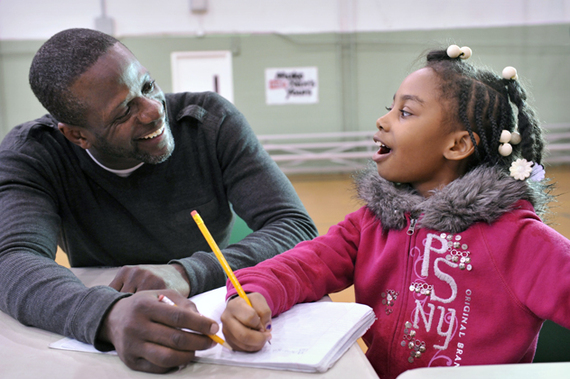
Many of the instructors and staff of the Salvation Army music and arts programs are volunteers from within Philadelphia communities.
The goal of the music and arts program of the Salvation Army in Eastern Pennsylvania and Delaware is to provide disadvantaged youth from their 16 corps community centers access to quality instruction.
Many of the Salvation Army programs are held in churches or "corps"and include a structured curriculum of piano, brass, voice, and snare drum lessons. The reach of the organization's core center involves a full range of ethnic expressions, from Latinos and African-Americans to Asian-Americans from urban, suburban and rural situations.
"At first I just wanted something to do in order to pass the time," Christian Mendoza, a past participant of the Salvation Army Pioneer Corps in Philadelphia, said. "But when I started playing I wanted to continue playing and wanted to get better at it."
Mendoza, who is now a freshman at Bloomsburg University of Pennsylvania majoring in music education, had found out about the music and arts programs from his cousins who had already been attending the music and arts program.
"A lot of my friends feel strongly compelled because of the music that we play and how we worship God and how we use our instruments to glorify him," Mendoza said.
The Salvation Army, a Christian faith-based organization, provides weekly instruction in music and dance without cost throughout the school year.
With the help of donations, over 100 instruments are rented to these corps community centers for use by students who would otherwise not be able to purchase an instrument.
"So unlike other music programs in the city, kids can just show up," Ronda Atwater, regional music director for the Salvation Army for the Metropolitan Philadelphia Region, said. "The basics of that are based in our mission of the Salvation Army to offer what we can without discrimination. If students are a part of any of our programs we put an instrument in their hands."
Fresh out of college, Atwater had first started working for the School District of Philadelphia at Ludlow elementary where she taught general classroom music. Feeling frustrated by the lack of support that school administrators showed toward the arts, Atwater only worked there for a year.
"They would tell me that all my music classes were cancelled for the week and that they wanted me to go teach science," Atwater said. "There wasn't too much support for the arts because there was so much going on."
A West Chester University clarinet major, Atwater was trained in music even before attending college. She was trained throughout the Salvation Army music and arts program, like many of the instructors and staff of the organization.
The highlight of her summer was being able to attend Camp Ladore, a music camp that allows teens from about 40 of the Salvation Army's corps community centers to benefit from a nine day music and art camp experience.
"Camp Ladore is not a city program, but it's a great way for our city kids to get out of the city and just go to place with more space and be in an open environment to continue studying music," Atwater said. "Every July for nine days we hold a music camp where any child who is involved in music can come and have instruction for brass, singing, guitar, piano, dance, and drama. They also get to do campy stuff like swimming and horseback riding."
A lot of the Salvation Army programs are advertised on the free radio stations such as clear channel and WDAS, but information also goes through the schools.
"If we're going to have a program we create fliers and we distribute them to the kids to take home," Eileen Hence, director of the Salvation Army's STEM Program for Youth, said. "Not only that, but we try to work with someone within the school district to try and create a parent email blast so that they will know that we are doing these kinds of programs and that their children are invited."
The Science Technology Engineering and Mathematics program or STEM, separate from the music and the arts programs, gives children grades K-8 a hands on education in science and technology, while improving their grades in school and opening doors to careers and opportunities in math and science they can aspire to.
The program receives support from PECO's Energizing Education Program and the NEED Project, who provide training and materials for students.
"I think the programs that are offered at the Salvation Army are important because they are relevant to today and what's going on today in the world, secondly I think that our programs bring young people together," Hence added. "They promote teamwork, they promote discussions and better relationships with parents at home. Lastly, the programs help create a stable place for kids to go."
Twenty-first Century is the funder of one of the three science programs the Salvation Army implements during the school year. They also fund the organization's Energy Savings Science Fair.
"Even though there is a lot of cuts in funding, the Salvation Army will continue the types of programming that we have." Hence said.